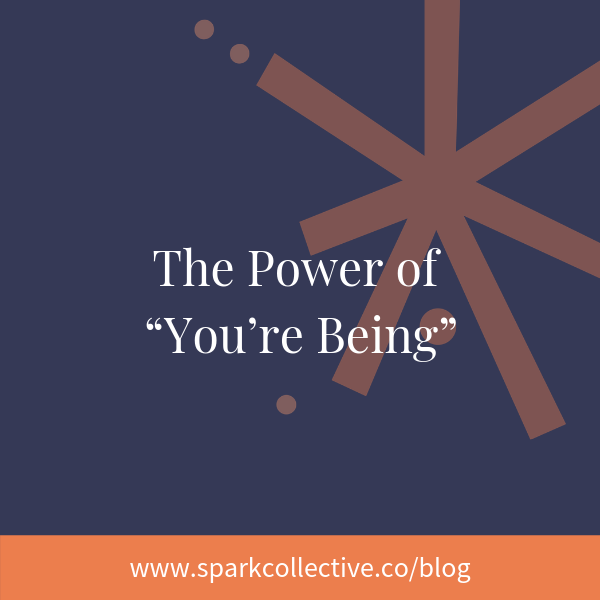Not sure if you’ve noticed it or not, but we are living in a quick-to-judge culture. We’re more polarized than at any other time many of us can remember, and because of technology, we can insult someone without having to look them in the eye. People and their lives are being reduced to 280 characters at a time. Internet commentary often conflates someone’s action or belief with their entire personhood. For example, someone is “an idiot” when they say something inaccurate.
As I have reflected on this and how it isn’t sitting well with me, I pulled on a lot of learning from different moments of my life- as a coach, middle school teacher, and college student- that encourages us to see a person and their behavior as somewhat distinct from one another. For instance:
- There is a well-known coaching framework: Observer + Action = Result. The observer has beliefs, experiences, world views, and values that inform the action the person takes, which affect results. In this framework, action is distinct from the person, though highly informed by them and also self-reinforcing.
- Research professor and author Brené Brown has done a ton of research about guilt and shame. She draws the distinction that guilt is what happens when one perceives they have done something wrong. When they feel shame, they perceive themselves as unacceptable.
- Psychologist Carol Dweck wrote about fixed versus growth mindset. If you have a fixed mindset, you believe you are who you are and you won’t change. A growth mindset recognizes that the brain is malleable, so new actions provide opportunities to grow and develop throughout life. In this framework, once again, actions are distinct in many ways from personhood.
- In some forms of meditation, we are taught to see ourselves as separate from our thoughts, feelings, and actions. Like clouds in the sky, they come and go. Our fundamental selves are unattached.
Pulling on these ideas, I made a deal with myself the other day. I challenged myself to reframe my thinking about others’ behavior by making the distinction between the person and the act.
So, when the person standing in front of me in the subway wouldn’t move so I could get out, I thought, “this person is acting rudely” as opposed to “this person is rude.” When my one-year-old daughter touched her head for the first time when I asked where it was, I thought, “She did something smart” as opposed to “She is smart.” When I was worrying about the details of a recent project, I thought, “I am feeling anxiety” as opposed to “I am anxious.”
After only a day or so of doing this, I noticed some pretty cool things:
- I felt more compassion in situations that typically annoy me. I saw a person behind the behavior, and I became curious about why the person chose their action as opposed to instantly judging them for their action.
- I was generally in a better mood and felt more optimistic. When we judge others, it can feel like writing them off. When we feel disconnected with others, it is common to feel sadness and pain. When we see someone’s actions and beliefs as separate, we see someone’s potential to make change. The possibility of change breeds hope.
I’ll be honest, I also felt some internal push back, particularly in cases where someone’s behavior is consistently a certain way. If someone is consistently acting rude, it’s hard not to call them rude. If they are consistently, oh I don’t know, lying, it’s tempting to call them a liar. In an effort to push myself to continue to honor the person behind the action, I’ve struck a middle ground- they have a “tendency toward rude,” or “a tendency towards lying.”
So what’s sparking for you? Are you thinking of trying this framing? I would love to hear about your experience, and if anything surprised you or was challenging for you when doing so.
Photo from Unsplash, credit to Billy Huynh


